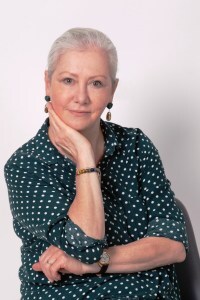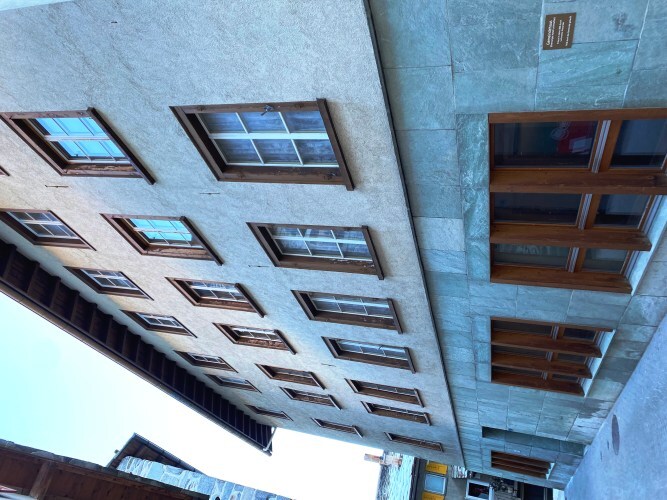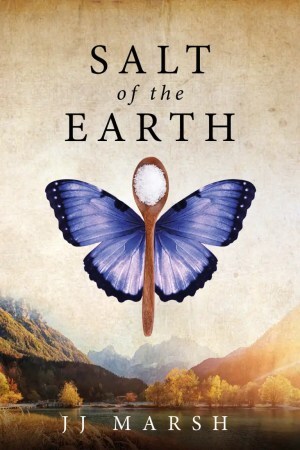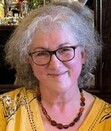In Conversation with Novelist JJ Marsh
 Meet novelist JJ Marsh
Meet novelist JJ MarshThis year, my last blog post of every month will be a conversation with one of my author friends, talking about an aspect of their writing life that I hope will interest my readers too.
Today I’m delighted to welcome JJ Marsh. Jill is a prolific author of critically acclaimed thrillers set all over Europe and also in South America.
Yet her latest book, Salt of the Earth, is a gentle historical novel inspired by a revolutionary episode of medical history that deserves to be much better known: the century-old discovery of effective treatment for a particular form of hypothyroidism.
I’m delighted to share my recent conversation with Jill to tell you the story behind the story and to bring her work to a wider audience.
Debbie: Jill, you usually write contemporary fiction. What was it about this story that caused you to sidestep into historical fiction (something I’ve always shied away from myself), and how hard was it to change course?
Jill: Every writer encounters a moment, idea or concept which thrills you to your bones. Browsing the Swiss Museum’s blog, I stumbled over a historical note and immediately knew it was extraordinary. I talked to my husband – the marketing expert – and he agreed it was a story worth telling.
Debbie: P lease describe the medical revolution at the heart of the novel.
Jill: In a nutshell, certain areas of Switzerland suffered from chronic hypothyroidism, manifested by huge goitres, brain fog, ‘cretinism’ as it was called in those days and severe under-development.
We’re talking a centuries-old affliction.
One doctor – Hunziker – posited a theory that this malaise was not caused by poor hygiene or bad air, but a lack of an essential element: iodine. Dr Otto Bayard took it upon himself to test the hypothesis by treating local villagers with iodised salt.
Debbie: Where did you first hear about Dr Bayard’s revolutionary work, and how did you find out all that you needed to know to write your novel about it?
Jill:
To be honest, I couldn’t believe no one was talking about this incredible breakthrough which changed the face of Switzerland.
In Zürich, we’re lucky to have the Zentralbibliothek, which holds a goldmine of information, including handwritten correspondence from over a century ago.
I also interviewed an endocrinologist from Lausanne, a professor from Zürich University, visited Bayard’s village and read the definitive works on the subject in French, German and English.
Debbie: Have you or your family been personally affected by goitre (the most visible outward symptom of thyroid insufficiency) or was there another reason that this story piqued your interest?
Jill: Hand on heart, I knew pathetically little about the thyroid gland. Only through research and educating myself did I learn its importance.
My fascination originated in how Swiss (French, Austrian, US etc) lives changed when iodine was introduced as a food intervention.
Debbie: Although three people in my family have underactive thyroid, I’d never heard about Bayard’s work before – even though I’m very familiar with the almost contemporaneous story of the isolation of insulin to treat Type 1 diabetes, which affects my daughter and my husband. Why does Bayard’s story seem more obscure? (Or am I just ignorant?!)
Debbie, you’re far from ignorant. Everyone in Switzerland knows the tale of William Tell. But hardly anyone knows the story of how three country doctors erased a malaise dating from Roman times.
Their achievements not only transformed the Alpine communities, but changed places as distant as the Great Lakes and the Himalayas.
That is why I had to tell this story.
 Dr Bayard’s surgery
Dr Bayard’s surgeryDebbie: You’re a British-born Swiss citizen. Bayard’s breakthrough should be a huge source of pride to the Swiss nation. How important was the Swiss element of the story to you? How typically Swiss is it for a major medical breakthrough to unfold quietly and modestly in out-of-the-way places?
It should be a huge source of pride, but people have short memories.
Early 20th century tourists came to the Alps to admire the mountains and marvel at the people, as if they were a freak show. Iodised salt was also a political battle, where another hero emerges. Dr Hans Eggenberger convinced his canton to vote for iodised salt and the rest of the country followed.
Debbie: Your story is obviously based on fact, but you’ve used a fictional format to bring it to vivid life. How did you decide how much of it to make up? ,
Relating the facts can be very dry. I needed to employ characters who suffered, struggled and overcame the very real challenges and conflicts of the time.
This medical advance happened towards the end of the First World War, when turmoil and social unrest was frighteningly close. Lenin wrote in the very same library I mentioned above, and Zürich was at the centre of an artistic revolution. I wanted readers to identify with my invented figures and the romance added an extra level of tension.
Debbie: Although in many ways, Salt of the Earth is a complete departure from your usual territory, what common ground is there between writing about the solution to a medical dilemma and solving fictitious crimes?
Much as I loved bringing this vitally important development in Swiss and medical history to life, the research is a massive responsibility. I owe it to Hunziker, Bayard and Eggenberger to get things right.
As I said to my writing group when I’d finished, ‘I can’t wait to get back to making stuff up’.
Debbie: The novel has been very well received. What has pleased you most about its success?
What makes me happiest is when readers say they learned something – whether it’s about iodine deficiency and hypothyroidism, Alpine life 100 years ago, Switzerland’s role in WWI or how dramatically Europe changed in the early 20th century.
Debbie: Where can people buy a copy of Salt of the Earth, and in which formats is it available?
It’s available as ebook and paperback, in both English and German here: https://geni.us/AMZ_Salt_of_the_Earth

Debbie: Finally, please share a summary of your other books and writing, which I also highly recommend.
The Beatrice Stubbs Series:
14 crime novels set in different European locations
The Run and Hide Series:
4 (so far) international thrillers about a hunted woman
Two standalone psychological thrillers:
Odd Numbers and Wolf Tones
 A good starting point for reading JJ Marsh’s international crime thrillers
A good starting point for reading JJ Marsh’s international crime thrillersDebbie: What’s next for you, Jill?
Just finishing Blood and Sand, Book 5 in the Run and Hide Series, before starting work on a new historical fiction novel, currently titled The First Lady of the Alps. I can’t say too much about the story yet, but it includes some very real and absolutely remarkable people.
Thanks so much for inviting me and spreading the word about the book. This story is very special to me.
For more information about JJ Marsh and to sign up for her enewsletter, visit her website:



